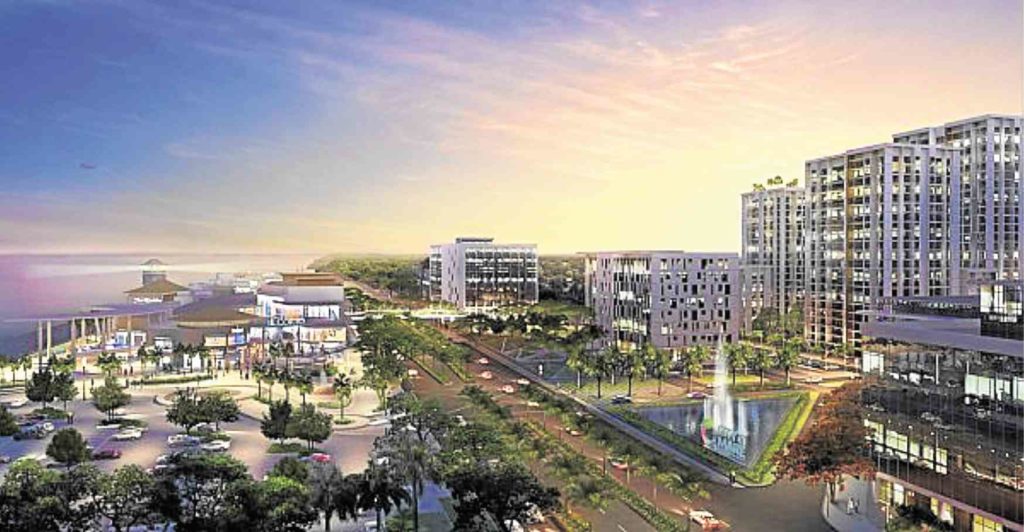Maximizing opportunities, ensuring sustained growth

In the increasingly competitive environment, property developers need to distinguish their projects from others.
(Conclusion)
As the Philippines continues to be a sweet spot for foreign investors, it may be a good time for real estate firms to look at how they can tap potentially lucrative opportunities offered by this situation.
Monique Pronove, CEO of Pronove Tai International Property Consultants, said in an interview that the current positive economic outlook presents opportunities for real estate developers to plan and strategize for future projects.
And if there are significant improvements in foreign investments in 2018, the effect would definitely be felt in the next five years most specifically in the real estate industry.
“With this framework, real estate companies are encouraged to look for property in areas that are aligned with the government’s infrastructure programs. With these strong programs on infrastructure that will fuel economic growth through public spending, real estate companies should landbank alongside the areas of infrastructure growth,” Pronove told the Inquirer.
Article continues after this advertisementGovernment reforms
Article continues after this advertisementFor Colliers International Philippines, the different reforms being rolled out by the current administration could help provide the right direction for property developers.
Joey Bondoc, research manager at Colliers, pointed out for instance that the government’s aggressive infrastructure spending, coupled with its decentralization thrust, is seen to unlock land values outside of the country’s capital. This, in turn, should dictate the strategies of local and national developers over the medium term.
“As economic activities spread outside of Metro Manila, we see the proliferation of alternative business hubs in second and third tier cities. This should support the development of more integrated communities,” Bondoc told the Inquirer.
Other reforms that may provide a fresh impetus for property developers include the relaxation of foreign ownership restrictions on retail and construction; amendments to the existing procurement law and business registration systems; and the implementation of the first package of the comprehensive tax reform program.
At least 70 percent of the additional revenues that will be generated from the TRAIN law would be funneled to projects that will address congestion, particularly for mass transport and new road networks.
Strategies
“Eight of the 10 projects that will be implemented using the additional tax revenues are in the provinces, supporting the government’s infrastructure implementation and decentralization push,” Bondoc added.
Bondoc thus proposed several strategies that will allow property developers to maximize such opportunities.
These include exploring operation and maintenance opportunities for the developers’ infrastructure units; offering unique value propositions in township projects; ensuring strategic landbanking; and developing flexible office space to accommodate firms that require smaller spaces.
“We recommend that developers be more innovative given the proliferation of townships and expansion of opportunities in alternative markets such as Pampanga, Cavite, Laguna, Cebu, Bacolod, Iloilo, Davao and Cagayan de Oro,” Bondoc noted.
“Developers are aggressively acquiring large parcels of land that could be developed into master-planned communities. In the increasingly competitive environment, developers need to distinguish their projects from others,” he said.
Bondoc explained that apart from the typical land uses such as office, residential, retail and hotel, Philippine property developers should also incorporate institutional uses such as education and healthcare.
He cited as an example other developers that have been more aggressive in “differentiating” their communities by integrating entertainment and recreational facilities.
These townships include Circuit Makati with its skate park; Nuvali with its wakeboarding facility; and Alviera bannered by Sandbox, which features the country’s first roller coaster zipline.
“The developers’ differentiation strategies are anchored on placemaking or the ‘multi-faceted approach to the planning, design and management of public spaces.’ Under this method, developers assess each community’s distinct assets and potential and eventually build facilities that will maximize those features,” Bondoc further said.
Intensifying efforts
To further cash in on such opportunities, developers must likewise intensify efforts in terms of strategic landbanking. This will allow developers to secure land in areas that hold greater potential for growth.
Within Metro Manila, opportunities for township developments are in Quezon City North (Fairview, San Jose del Monte, Novaliches and Commonwealth), Marikina and Pasig, according to Bondoc. Other provinces that are deemed viable locations for township developments include La Union, Pangasinan, Tarlac, Batangas, Naga, Iloilo, Bacolod, Cebu, Davao and Cagayan de Oro.
Developers are likewise urged to look into opportunities in the office property segment.
“The robust economic growth in the country’s capital reflects not just the sustained dynamism of the business process outsourcing-led services sector but also the expansion of other key economic sub-sectors such as construction, telecommunications, banking and finance, warehousing and logistics, and manufacturing,” Bondoc explained.
“We expect companies engaged in these businesses to expand and occupy additional office space. We encourage developers to make their office buildings in their respective townships more flexible to accommodate demand from non-BPO or traditional companies that require smaller cuts,” he said.
According to Bondoc, this recommendation also applies to office buildings in townships outside of Manila since the current administration’s decentralization push is encouraging national government agencies and their attached bureaus, which occupy less office space than BPOs, to transfer to nearby provinces such as Pampanga.